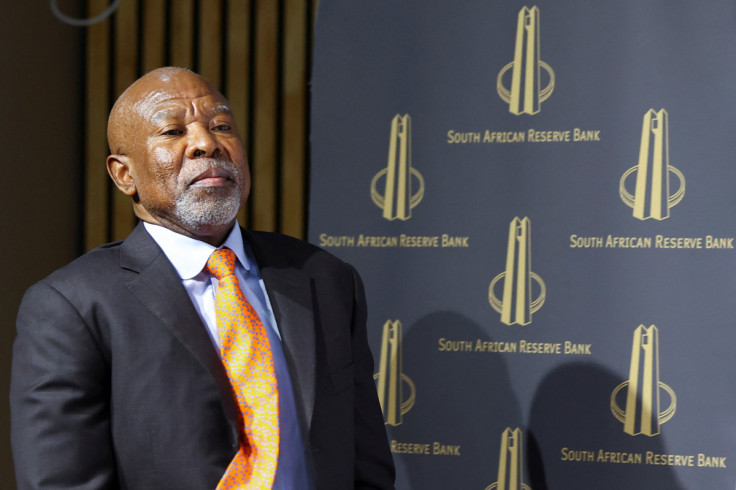South Africa's Reserve Bank Holds Interest Rate At 8.25%

South Africa's Reserve Bank announced on Thursday that Monetary Policy Committee (MPC) has decided to keep the interest rate locked at 8.25 percent.
However, the apex bank governor, Lesetja Kganyago, noted that this halt doesn't mean that the decision won't change in the future as it depends on the upside risks to the inflation and data.
"Have interest rates peaked? The answer is a resounding no," Governor Kganyago said during the press conference, Reuters reported. "Is this the end of the hiking cycle? No, it is not. It depends on the data and risks, that is what it boils down to."
He continued to explain that at the "current repurchase rate level, policy is restrictive, consistent with elevated inflation expectations and the inflation outlook," SANews reported. "Serious upside risks to the inflation outlook remain. In light of these risks, the Committee remains vigilant and decisions will continue to be data dependent and sensitive to the balance of risks to the outlook "
The governor noted that South Africa's economic conditions have improved, however, there is always uncertainty in the long term, considering the global environment. He acknowledged the fact that prices for commodity exports continue to weaken.
He further added that the ongoing energy crisis in the country also plays a role in this, adding that "stronger El Nino conditions threaten the agricultural outlook." According to the central bank's forecast for South Africa's GDP growth, it is 0.4% higher compared to May.
"Energy and logistical constraints remain binding on the growth outlook, limiting economic activity and increasing costs," he said. "From a demand perspective, spending by firms, households, public corporations, and general government remains positive in real terms."
He continued, "Disposable income of households continues to grow, albeit slowly. Investment by the private and public sectors is revised up and the terms of trade have remained more beneficial than previously forecast."
Compared to last year, the governor said that the credit growth to households and corporates has increased. Although they have been slowed down in the recent month.
Kganyago noted that if there is an improvement in logistics and a reduction in load shedding, then the GDP of the country would significantly increase.
"At present, we assess the risks to the medium-term domestic growth outlook to be balanced," he explained. "Turning to inflation prospects, our current growth forecast leaves the output gap around zero over the next three years, implying little positive or negative pressure on inflation from GDP growth."
Talking about South Africa borrowing loans, the governor explained that this is happening due to sharply lower tax revenue, higher employee compensation, and ongoing financing needs of state-owned enterprises.
"Expectations for inflation in 2023 based on market surveys are currently 5.9%, and near-term breakeven rates have decreased to around 4.5%. Longer-term expectations remain elevated," he concluded.
Last month, Kganyago acknowledged the highest interest rate of 8.25% recorded in May and said increased interest rates are important to control inflation.
© Copyright 2025 IBTimes ZA. All rights reserved.





















